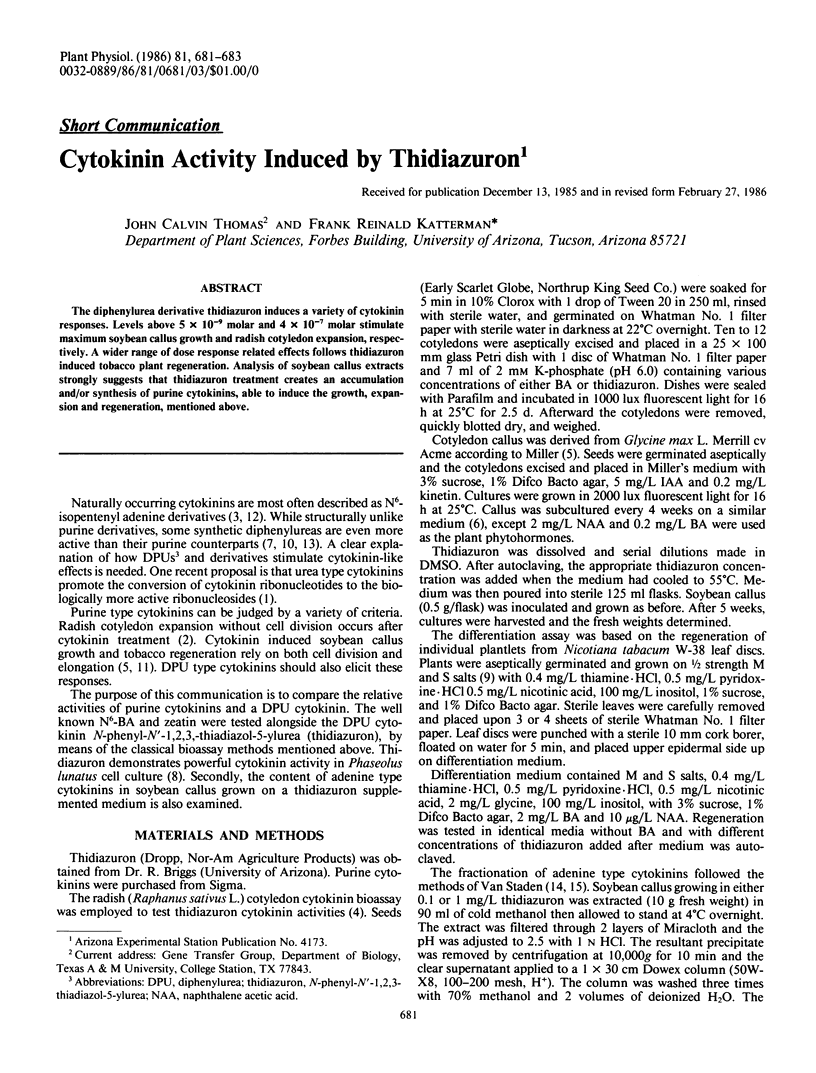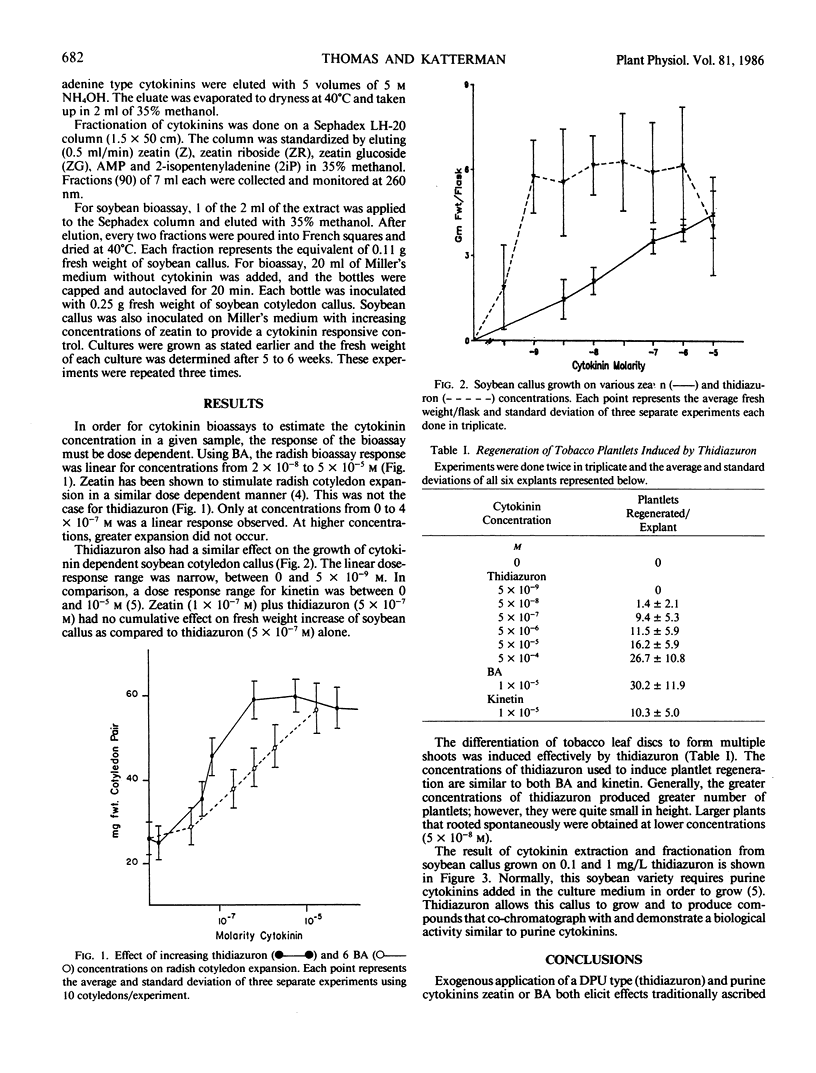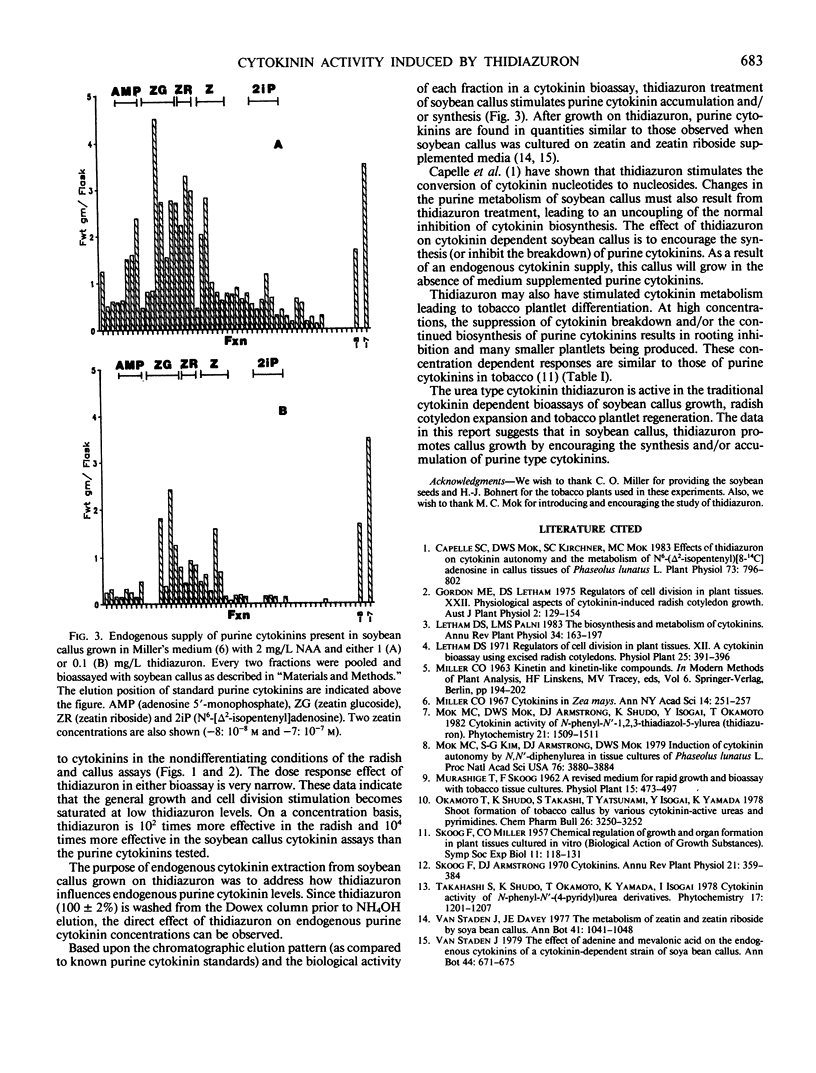Abstract
The diphenylurea derivative thidiazuron induces a variety of cytokinin responses. Levels above 5 × 10−9 molar and 4 × 10−7 molar stimulate maximum soybean callus growth and radish cotyledon expansion, respectively. A wider range of dose response related effects follows thidiazuron induced tobacco plant regeneration. Analysis of soybean callus extracts strongly suggests that thidiazuron treatment creates an accumulation and/or synthesis of purine cytokinins, able to induce the growth, expansion and regeneration, mentioned above.
Full text
PDF


Selected References
These references are in PubMed. This may not be the complete list of references from this article.
- Capelle S. C., Mok D. W., Kirchner S. C., Mok M. C. Effects of Thidiazuron on Cytokinin Autonomy and the Metabolism of N-(Delta-Isopentenyl)[8-C]Adenosine in Callus Tissues of Phaseolus lunatus L. Plant Physiol. 1983 Nov;73(3):796–802. doi: 10.1104/pp.73.3.796. [DOI] [PMC free article] [PubMed] [Google Scholar]
- Mok M. C., Kim S. G., Armstrong D. J., Mok D. W. Induction of cytokinin autonomy by N,N'-diphenylurea in tissue cultures of Phaseolus lunatus L. Proc Natl Acad Sci U S A. 1979 Aug;76(8):3880–3884. doi: 10.1073/pnas.76.8.3880. [DOI] [PMC free article] [PubMed] [Google Scholar]
- SKOOG F., MILLER C. O. Chemical regulation of growth and organ formation in plant tissues cultured in vitro. Symp Soc Exp Biol. 1957;11:118–130. [PubMed] [Google Scholar]


